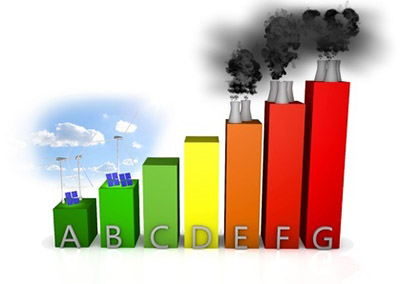EPEE welcomes EC’s “cool” energy plans
1st March 2015 BELGIUM: EPEE has welcomed the European Commission’s plans for a resilient Energy Union and its focus on cooling applications in buildings.
BELGIUM: EPEE has welcomed the European Commission’s plans for a resilient Energy Union and its focus on cooling applications in buildings.
Aware that the EU is the largest energy importer in the world, the European Commission insists its proposed Energy Union will ensure secure, sustainable, competitive and affordable energy. The EU currently imports 53% of its energy at a cost of around €400bn, with six member states in particular being vulnerable to supply shocks by depending on a single external supplier for their entire gas imports.
Amongst 15 key proposed action points is a plan to put a stronger policy focus on the heating and cooling of buildings – recognised as the largest single source of energy demand in Europe.
The document, A Framework Strategy for a Resilient Energy Union with a Forward-Looking Climate Change Policy, says: “Huge efficiency gains remain to be captured with regard to district heating and cooling, which will be addressed in a Commission strategy.”
The Commission says it recognises the contribution that making existing buildings more energy efficient and making full use of sustainable space heating and cooling could make to reducing the EU’s energy import bills. At the same time, this would also reinforce energy security and cut energy costs for households and businesses.
The Commission intends to propose a strategy to facilitate investment in heating and cooling.
To exploit the energy efficiency potential of buildings, the EC says action is needed by member states, particularly at the local and regional levels. However, it recognises that attracting investments at the scale needed remains a challenge, especially at the local level, mainly due to lack of awareness and expertise in small-scale financing.
The Commission says it will support ways to simplify access to existing financing and offer ‘off-the-shelf’ financing templates for financial instruments to the European Structural and Investment Funds managing authorities and interested stakeholders, promote new financing schemes based on risk and revenue sharing, develop new financing techniques and support in terms of technical assistance.
Pledging its support for the European Commission’s plans, EPEE says, “Applications in buildings have the, as yet, untapped potential of flexible (smart) consumption which supports the uptake of renewables. There already is a wide range of products within the heating and cooling sector which enable significant energy savings through energy efficiency, but there remains room for further innovation and even more efficient technology.”
EPEE calls on member states to improve market surveillance to ensure current standards are respected in the markets and that consumers can benefit from the improvements.
“Efficient heating and cooling can help reduce the environmental impact of buildings and contribute directly to the implementation of nearly zero energy buildings in the near future,” it adds.
To do that it asks the Commission to identify alternative ways to reduce energy demand, replace existing equipment with highly efficient alternatives, and empower consumers to use smart technologies to reduce energy consumption and be rewarded for it.
“The heating, cooling and refrigeration industry helps deliver energy efficiency and low carbon innovative technologies. In addition to putting energy efficient products on the market today, we also continually develop innovative and environmentally-sound solutions and energy efficient technologies such as refrigeration systems, air conditioning equipment and heat pumps. Our sector is playing its part in helping the EU meet its ambitious climate and energy objectives and is also committed to playing a leading role at the global level.”







